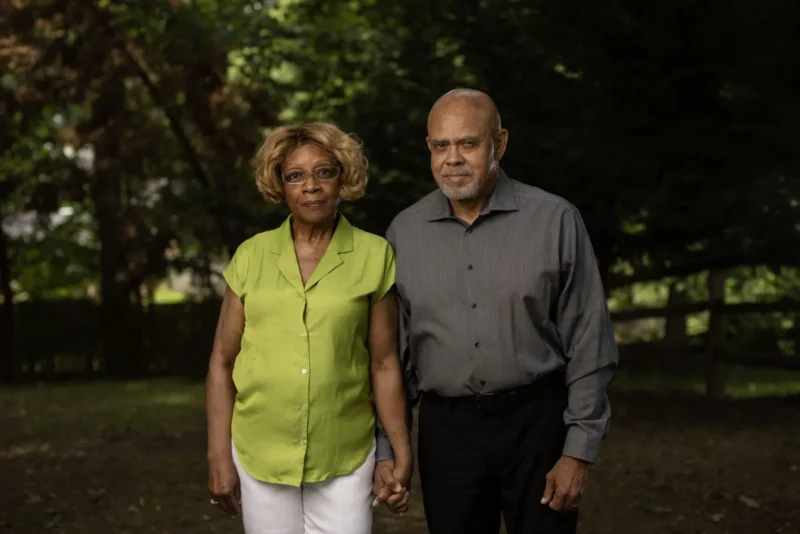This Black Family Won’t Back Down After Court Allows Railroad to Take Their Land
Share
Explore Our Galleries
Breaking News!
Today's news and culture by Black and other reporters in the Black and mainstream media.
Ways to Support ABHM?
By Aallyah Wright, Capital B

Blaine and Diane Smith were hurt but unsurprised when a Georgia superior court judge ruled last week that a railroad company could seize their land, despite their refusal to sell.
For nearly two years, they have been fighting to stop Sandersville Railroad Co., a 130-year-old, white-owned business, from building a 4.5-mile rail spur through a historically Black neighborhood in rural Sparta. The company initiated eminent domain, which is a process that allows the government to seize private property for public use. However, property owners must receive just compensation.
The proposed spur would cut through parts of the property Blaine and his siblings inherited, which includes 600 acres acquired by his grandfather in the 1920s. Growing up, he farmed, fished, and hunted on the land. His family cultivated cotton, fruits, vegetables, and timber, and raised pigs, chickens, and cows. Not only has it been used to feed generations, but to pay for some family members’ education as well.
Currently, his brother Mark Smith and his wife, Janet Paige Smith, live on the land.
[…]
“We’ve had to fight to keep this land. It’s always somebody coming in trying to bamboozle you out of it,” Blaine told Capital B.
[…]
However, the landowners, which consist of Black and white families, say they won’t be discouraged from the ruling. The Institute for Justice, which represents them, is appealing the decision to the Georgia Supreme Court.
“We’re going to fight till we can’t fight anymore,” Diane said. “I don’t want to leave any stone unturned. My grandmother used to say, ‘no stone unturned’, so you keep unturning and unturning.”
Capital B explains how the company responded to the ruling.
Families like this may be reluctant to give up land because slavery and redlining made it difficult to own land.









Comments Are Welcome
Note: We moderate submissions in order to create a space for meaningful dialogue, a space where museum visitors – adults and youth –– can exchange informed, thoughtful, and relevant comments that add value to our exhibits.
Racial slurs, personal attacks, obscenity, profanity, and SHOUTING do not meet the above standard. Such comments are posted in the exhibit Hateful Speech. Commercial promotions, impersonations, and incoherent comments likewise fail to meet our goals, so will not be posted. Submissions longer than 120 words will be shortened.
See our full Comments Policy here.